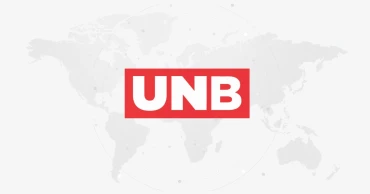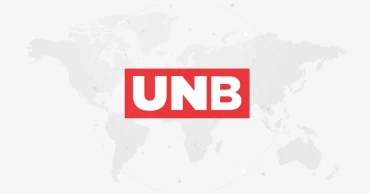ready-made garment (RMG) industry
IFC provides liquidity succour to Covid-hit RMG sector
To help Bangladesh’s export-oriented ready-made garment (RMG) industry offset the Covid-induced losses, the International Finance Corporation (IFC) has now stepped in.
To start with, the sister organisation of the World Bank has invested 22.7 million USD in Hamza Textiles Limited (HTL), a dyeing and finishing company owned by the Dulal Brothers Ltd (DBL) Group.
The investment marks IFC’s first Covid-19 support in the RMG sector and includes financing from the International Development Association’s Private Sector Window (IDA-PSW), set up to catalyse investment in low-income and fragile countries.
Read: Steps sought for re-skilling, upskilling of RMG workers to face 4IR challenges
According to the IFC, the financing will help the company build a new factory with advanced and resource-efficient technologies to respond to evolving demands of consumers and create more than 900 direct new jobs.
“The new factory will allow Hamza to work with new fabrics to meet increasing buyer requirements, widen its manufacturing base and highlight the effectiveness of advanced technologies to cut production costs and deliver climate benefits,” said MA Jabbar, DBL's Managing Director.
The expanded operation is also expected to contribute 8 million USD to Bangladesh's economy directly and indirectly through local supply chains by 2028, 15 million USD in expected economic activities generated by additional income of employees, and boost opportunities for micro, small, and medium enterprises along the supply chain.
HTL provides dyeing and finishing services for fabrics that are used in making RMG by its sister companies, owned by the DBL Group, which is one of Bangladesh’s largest integrated knitted apparel manufacturers and exporters.
IFC’s investment will help expand HTL’s finishing capacity by 80 tonnes per day to reach a total capacity of 103 tonnes per day at its new factory, which will also be a Leadership in Energy and Environmental Design (LEED) certified green building.
Read: UNGPs: Experts say work environment in RMG sector needs to be improved
4 years ago
Bangladesh will continue to attract foreign investments, defying downturn: US
Bangladesh will remain the most resilient and continue to attract foreign direct investments (FDI) to live up to its image as a favourite place for global investors, despite the Covid-induced economic downturn. This inference can be drawn from a new report released by the US Department of State.
The US Department of State released the ‘2021 Investment Climate Statements’ on Wednesday that mentioned Bangladesh’s sustained economic growth over the past decade, a large, young, and hard-working workforce, strategic location between the large South and Southeast Asian markets, and the presence of a vibrant private sector.
The government's efforts in Bangladesh to improve the business environment in recent years show promise but implementation has yet to materialise, according to the report that analyses the investment climate in more than 170 global economies that are current or potential markets for US companies.
Read:BGMEA discusses export, FDI opportunities with Bangladesh envoy
Bangladesh has made gradual progress in reducing some constraints on investment, including taking steps to better ensure reliable electricity, but inadequate infrastructure, limited financing instruments, bureaucratic delays, lax enforcement of labour laws, and corruption continue to hinder foreign investment, the report stated.
Slow adoption of alternative dispute resolution mechanisms and sluggish judicial processes impede the enforcement of contracts and the resolution of business disputes, as per the report.
Buoyed by a young workforce and a growing consumer base, Bangladesh has enjoyed consistent annual GDP growth of more than six percent over the past decade, with the exception of the Covid-induced economic slowdown in 2020, the report mentioned.
Much of this growth continues to be driven by the ready-made garment (RMG) industry, which exported $28.0 billion of apparel products in FY 2020, and continued remittance inflows, reaching a record $18.2 billion in FY 2020, as per the US report.
However, the country’s RMG exports dropped more than 18 percent year-on-year in FY 2020 as Covid depressed the global demand for apparel products.
4 years ago



